Economic democracy
With a decisive mandate for economic deliverance the new government will have to rapidly do more than just provide inclusive growth. It will have to foster a market culture that makes economic democracy possible
 Courtesy:
Courtesy:
With a decisive mandate for economic deliverance the new government will have to rapidly do more than just provide inclusive growth. It will have to foster a market culture that makes economic democracy possible
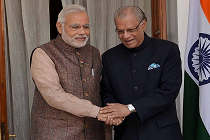 Courtesy: MEA photo gallery
Courtesy: MEA photo gallery
A blue economy needs to be looked at as an advanced version of environmental sustainability rather than as just a plan that helps towards the rapid development of island nations and others with vast coastlines
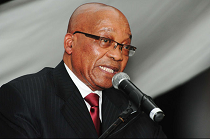 Courtesy: GovernmentZA/Flickr
Courtesy: GovernmentZA/Flickr
The African National Congress party which has won its fifth consecutive victory in the elections faces a long-term challenge, both on the streets and at the ballot box. The newly formed Economic Freedom Fighters party has cut into the ANC’s base significantly in habitual strongholds like Gauteng, the economic hub
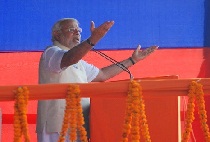 Courtesy: Shumita Sharma Deveshwar
Courtesy: Shumita Sharma Deveshwar
A decisive, corruption-free, and pro-industry government – that is what over 1.25 billion Indians are hoping for from the Narendra Modi-led National Democratic Alliance which will lead India for the next five years. Gateway House experts outline the key foreign policy priorities for the new government
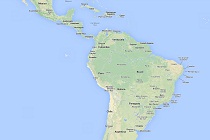 Courtesy: Google Maps
Courtesy: Google Maps
In 'Latin America Update' Gateway House lists some of the important events in Latin America over the past month
 Courtesy: Government of Brazil/Wikimedia Commons
Courtesy: Government of Brazil/Wikimedia Commons
Brazil’s advantages – including resources of oil and gas, no historical baggage, an absence of terrorism and military conflicts – and regional leadership, make it a potential global power. But it also has to tackle many challenges in the medium-term, such as poverty, poor infrastructure, healthcare and education
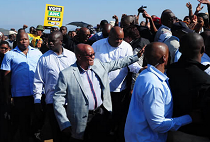 Courtesy: GovernmentZA/Flickr
Courtesy: GovernmentZA/Flickr
The African National Congress has swept the polls in South Africa but high unemployment, violent labour strikes and allegations of crony capitalism has seen an erosion of the ANC’s support base among the black middle class voters whose backing the ANC has traditionally enjoyed
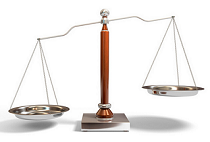 Courtesy: winnifredxoxo/Flickr
Courtesy: winnifredxoxo/Flickr
Thomas Piketty, in his latest book, argues that the wealth concentration in developed economies is an outcome of the economic policies that have been followed over the centuries. His study offers insights for Indian economists who are faced with addressing the growing wealth gap between the country’s rich and the poor
 Courtesy: Wikimedia Commons
Courtesy: Wikimedia Commons
Climate change is a reality but most of us continue to live every day without acknowledging this fact or taking any action to ameliorate its effects. The author is of the opinion that every single human being needs to engage and understand this man-made phenomenon so that humanity is better prepared for its impact
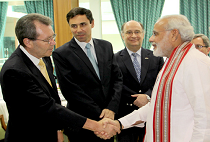 Courtesy: www.narendramodi.in
Courtesy: www.narendramodi.in
The burgeoning trade between the state of Gujarat and Latin America has ensured that Narendra Modi’s campaign is closely followed in Latin America. The new government in India must build on this engagement, which will help address India’s energy, food and investment needs